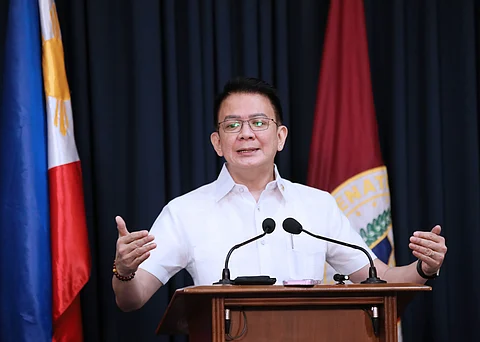
- NEWS
- the EDIT
- COMMENTARY
- BUSINESS
- LIFE
- SHOW
- ACTION
- GLOBAL GOALS
- SNAPS
- DYARYO TIRADA
- MORE

In a landmark move to reshape the Philippine bureaucracy, President Ferdinand Marcos Jr. has signed into law Republic Act No. 12231, or the Government Optimization Act, granting sweeping powers to reorganize the executive branch in pursuit of a more agile and effective government.
The new law, authored and strongly supported by Senate President Francis “Chiz” Escudero, aims to eliminate overlapping mandates, streamline processes, and enhance service delivery across government agencies. It marks one of the most significant structural reforms in decades.
“This reform is not about downsizing or budget cuts. It is about transforming our government into a more coordinated, responsive, and purposeful system,” Escudero said in a statement Tuesday, following the signing into law of the measure.
Under the Act, the President is empowered for five years to reorganize the executive branch, including the authority to merge, abolish, split, or create agencies and transfer or scale down their functions.
According to Escudero, the objective of the law includes the elimination of redundancies and institutional bottlenecks that have long hampered public service.
Among the key features of the newly enacted law are a five-year reorganization authority of the President to undertake sweeping organizational changes in the executive branch to improve efficiency. This includes the power to merge, consolidate, transfer, split, scale down, abolish, or create agencies as needed to optimize governance.
Escudero noted that certain sectors are exempt from the program, including teaching and teaching-related positions in public schools and universities, as well as military and uniformed personnel.
“Constitutional bodies, the judiciary, legislature, and local government units are also excluded, though they may voluntarily adopt similar reforms,” he said.
Escudero emphasized that the law sends a message to Filipinos that the government is committed to reform from within.
“Ultimately, the law promotes career advancement and professional growth among government personnel,” he said.
“By fostering a culture of merit and performance, it aims to inspire public servants to work with renewed dedication for the Filipino people,” he added.
The Government Optimization Act comes amid longstanding calls for structural reform in the bureaucracy, with government critics and think tanks frequently citing overlapping mandates, excessive red tape, and inefficiencies that result in poor delivery of basic services.
